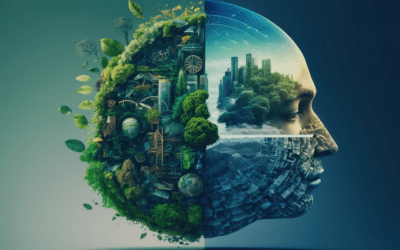Nate Hagens interviews Daniel Schmachtenberger on The Great Simplification….What is the role of intelligence vs wisdom on our current global pathway, and can we change course? Does artificial intelligence have a role to play in creating a more stable system or will it be the tipping point that drives our current one out of control?
Global polycrisis as a pathway for economic transition
By Zack Walsh, Polycrisis Transition Consultancy….This article is part of an ongoing collaboration between the United Nations Development Programme (Bureau for Program & Policy Support’s Strategic Innovation Unit & the Inclusive Growth/Chief Economist) and One Project. The purpose of the collaboration is to connect expertise in new economics with an emerging understanding of the global polycrisis. In this first article, we synthesize existing work and identify potential connections between these two fields. We seek to identify economic alternatives that provide systemic and proactive responses to the global polycrisis and propose potential supporting roles for development organizations like the UNDP.
On the ‘Polycrisis’: Part I
by Bo Harvey….“There is no single vital problem, but many vital problems, and it is this complex intersolidarity of problems, antagonisms, crises, uncontrolled processes, and the general crisis of the planet that constitutes the number one vital problem.”3
The Desert of the Anthropocene: An ongoing installation from artist Ravi Agarwal
The long engagement is a part of an ongoing investigation into the current state of the nature, both as a crisis which traverses a political realm, but also a cultural contestation of how ‘nature’ is thought of in the era of the Anthropocene.
The worst-case scenario for drought on the Colorado River
By Umair Irfan, Vox.com…One in eight Americans depend on a river that’s disappearing.
Navigating the polycrisis–life in turbulent times
By Michael Lerner, Angle of Vision…The polycrisis has many names—cascading crises, the metacrisis, the permacrisis, the great unraveling, the great simplification, “the end of the world as we know it” [TEOTWAWKI], and more. In Latin America it’s called “eco-social collapse.” The French call it “collapsologie.” Or one can simply call it turbulent times or a rapidly changing world.
Global rice shortage is set to be the biggest in 20 years
There’s a strained supply of rice as a result of the ongoing war in Ukraine, as well as weather woes in rice-producing economies like China and Pakistan.
The surprising thing A.I. engineers will tell you if you let them
by Ezra Klein, The New York Times…This is an example of “alignment risk,” the danger that what we want the systems to do and what they will actually do could diverge, and perhaps do so violently. Curbing alignment risk requires curbing the systems themselves, not just the ways we permit people to use them.
#20 – Global polycrisis with Thomas Homer-Dixon
A discussion with a researcher who studies the way global crises intersect.
This changes everything
In a 2022 survey, A.I. experts were asked, “What probability do you put on human inability to control future advanced A.I. systems causing human extinction or similarly permanent and severe disempowerment of the human species?”





